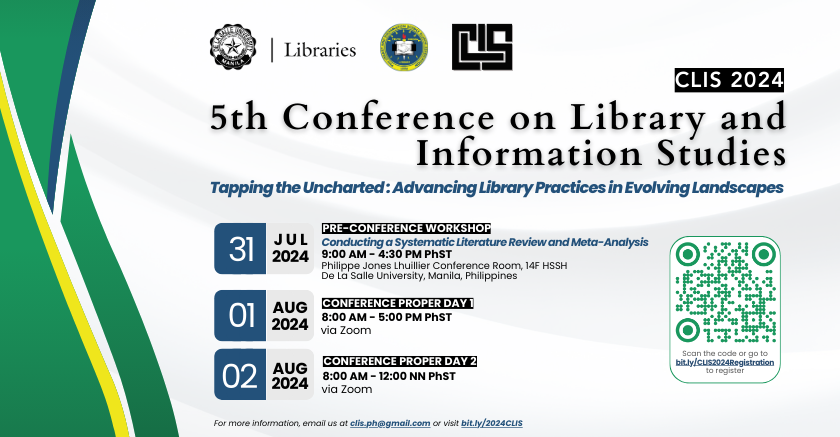The DLSU Libraries, in collaboration with the Philippine Normal University Library and Information Science Alumni Association (PNULISAA), hosted a two-day online conference on 01 - 02 August 2024 with the theme “Tapping the Uncharted: Advancing Library Practices in Evolving Landscapes.” The 5th Conference on Library and Information Studies (CLIS 2024) aims to gather local and international communities of library and information professionals, practitioners, LIS educators, and students to venture, share, and unpack the less discussed topics in the field of library and information studies and eventually make the participants more confident in navigating these landscapes.


